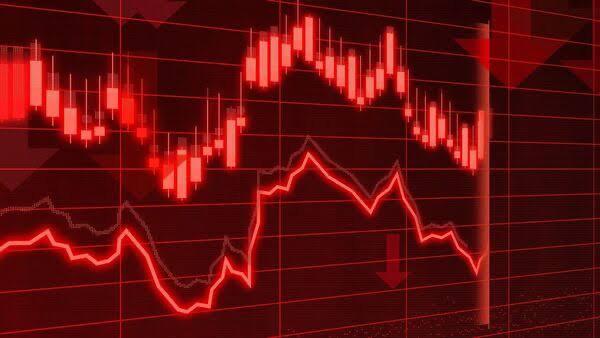The loss of the legislative majority by the Bharatiya Janata Party resulted in the largest decline in Indian equities since 2020.
Table of Contents
What’s the Cause?
The Bharatiya Janata Party’s failure to secure a halfway mark majority in the Lok Sabha elections of 2024 caused a major carnage on June 4. Now, the Indian stock market will focus on the central macroeconomic factors and the Reserve Bank of India’s (RBI) upcoming monetary policy meeting. The outcome of the Lok Sabha elections in 2024 caused significant anxiety in the stock market, which ultimately led to the greatest market collapse in four years. The National Democratic Alliance (NDA), led by the Bharatiya Janata Party (BJP), was expected to gain over 300 seats, according to Indian stock markets.
Investors are uneasy, though, as the BJP will now need to rely on the NDA alliance to establish a government because the election results were worse than anticipated. There is now question over Modi’s capacity to push his pro-business agenda in the 543-member Lok Sabha, the lower chamber of India’s parliament, as a result of the unexpected conclusion of Tuesday’s election tally, which forces him to rely on smaller parties.
After plunging as high as 8.5 percent earlier in the day, the NSE Nifty 50 and BSE Sensex indexes closed at 5.93 percent and 5.74 percent lower, respectively, on Tuesday. On Wednesday morning, Indian stocks saw additional losses before turning around in the afternoon, with both indexes rising by more than 1.5% as of 05:30 GMT.
Why Have Investors Reacted Negatively?
Throughout his ten-year term, investors have been overwhelmingly supportive of Modi’s economic programme. With the goal of making India a developed country by 2047, Modi has eliminated red tape, supported local industry, encouraged foreign investment, invested heavily in infrastructure, and vowed to eradicate corruption. The Nifty 50 index has nearly tripled in value under the leadership of the Indian leader, while some analysts contend that many Indian companies are currently overvalued. India’s stock market capitalization surpassed $4.3 trillion earlier this year, making it the fourth-largest market in the world, surpassing Hong Kong.
Indian markets shot to all-time highs ahead of Tuesday’s unexpected election results, with exit polls indicating that the BJP-led National Democratic Alliance (NDA) was headed for a resounding win.
The most populous country in the world has experienced rapid economic growth under PM Modi’s leadership. In the fiscal year that concluded in April, the GDP expanded by 8.2 percent, far surpassing the growth rates of the majority of industrialised and emerging nations. The GDP per person has increased from roughly $5,000 to more than $7,500 in the past ten years. India’s economy has grown from being the ninth largest in the world to the fifth largest in that time.
Even though Modi is almost certain to win a third term as prime minister, he may have to make concessions on some of his economic goals in order to reach agreements with smaller coalition members.
A very high majority for BJP-led NDA would have meant greater appetite for reforms and limited need for any populist measures, and continued capital expenditure agenda said Garima Kapoor, an economist and a senior vice president at Elara Capital in New Delhi.
The majority of public sector entities, public sector banks, and capital expenditure-led stocks are witnessing strong corrections as a result of the markets reassessing this shift said Senior Oxford Economics economist Alexandra Hermann, adding that Modi’s lower-than-expected majority will make it more challenging to enact changes pertaining to capital, labour, and land restrictions. Hermann told Al Jazeera that further, less contentious, infrastructure investment will likely remain a key focus.
